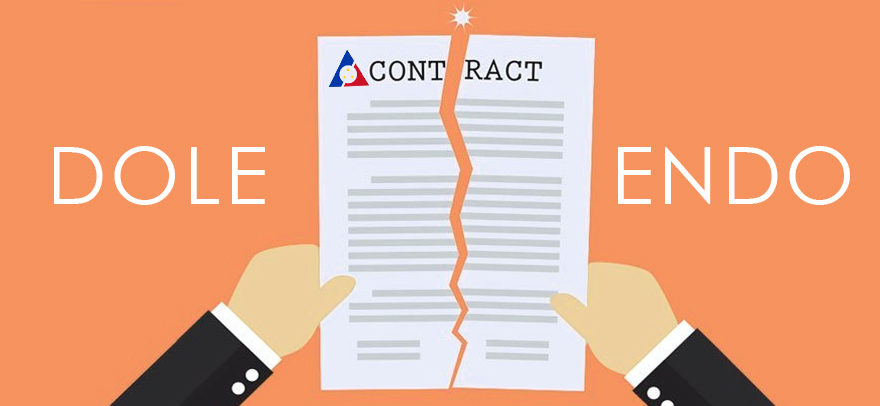DOLE struggles to put an end to ‘Endo,’ despite pressure from Pres. Duterte
Back in December 2016, the Department of Labor and Employment (DOLE) expressed their desire to abolish the practice of contracting and sub-contracting, better known as “Endo.” The “Endo” practice has been strongly opposed by President Rodrigo Duterte, whose 2016 campaign promise to prohibit “Endo” remains to be seen. Now that Duterte is president, DOLE feels the pressure to adhere to his objectives to remove the practice of “Endo,” which according to DOLE’s Bureau of Labor Relations (BLR) director Benjo Benavidez is a “breeding ground for violations of labor standards.” Given this, the organization’s sluggish move to abolish “Endo” remains questionable.
DOLE’s 2017 deadline not met?
In December 2016, DOLE announced the draft DO or department order that is set to change the regulations on sub-contracting. Labor Undersecretary Dominador Say explained that in contrast to the controversial DO 18-A, the new DO will “totally eliminate subcontracting,” the Philippine Star reported. The result? DO 174, which still doesn’t illegalize the contracting and sub-contracting of workers.
DOLE fails to deliver with DO 174
Three months into 2017, DOLE churned out DO 174, which was assumed to finally end the long reign of “Endo” throughout the country. While workers remained hopeful that DO 174 would install policies that would provide them with rightful benefits, it seemed as if their voices were left unheard. The new DO 174 still allows principal companies to hire workers through agencies. To make things worse, DO 174 also prohibited workers’ representatives to gain access to the service contract between the principal companies and the contractor or subcontractor. Rappler reported that the new DO 174 also removed the 10% minimum cap of the total contract price that’s allotted as the standard administrative fee, enabling contractors to ultimately have a bigger slice of the cake if they wish.
Businesses believe DO 174 makes things more ‘difficult’
Companies who benefit from labor contractors have expressed their disagreement on the new DO 174, as the Labor Code says contractualization remains legal in the country. Nonetheless, Employers Confederation of the Philippines (ECOP) acting president Sergio Ortiz-Luis expressed their commitment to adhere to DOLE’s odd new DO.
DO 174 benefits as explained by DOLE
Despite the flaws in DOLE’s DO 174, DOLE Undersecretary Dominador Say believes that this will benefit workers, especially in the construction industry. He explained to ABS-CBN News that instead of waiting around for a new contract, workers can now be given a new contract or assignment within 90 days of the end of their previous contract. Contractors will also be required to pay their workers 15 days worth of salary while waiting for new opportunities, and separation pay once the contractor fails to provide a new opportunity within 90 days of the end of their previous contract. Meanwhile, watchdog groups such as NAGKAISA Labor Coalition and SENTRO national labor center remain vigilant about DO 174 and the violation of workers’ rights. The implications of the DO 174 is clear: there must be a clear reform plan for outdated labor laws, especially given the rapid rate of how industries grow. Until then, labor groups are still waiting on DOLE to do their job.



